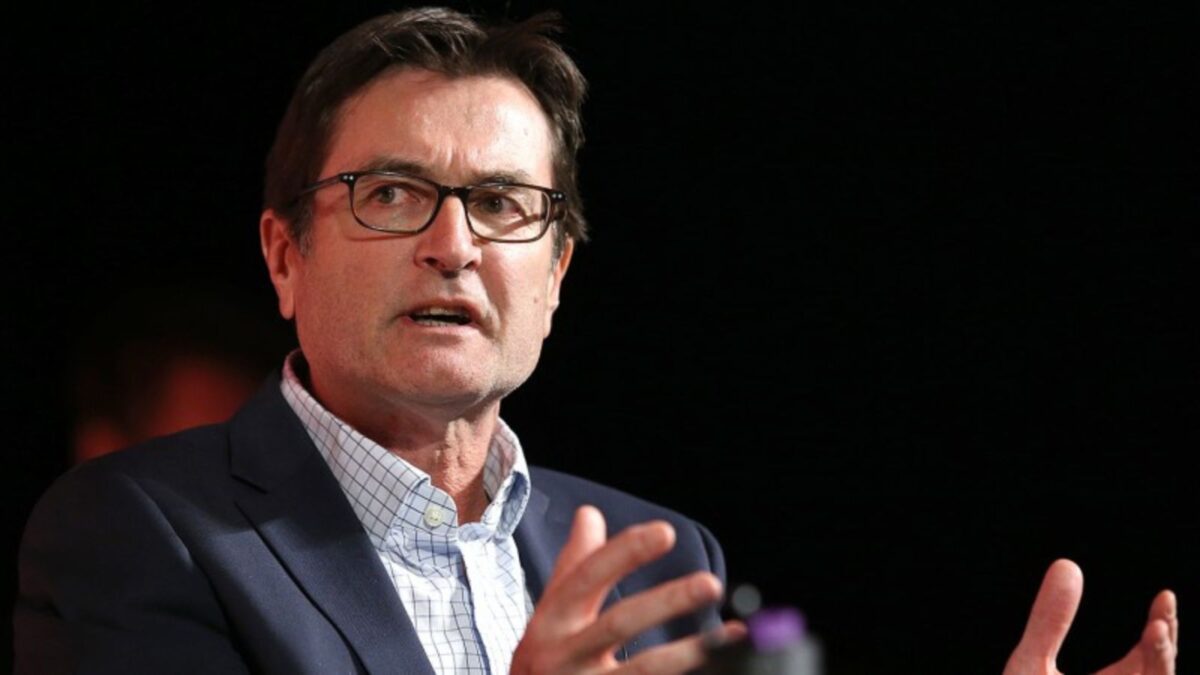Combet: Bigger is better (and inevitable)
It’s not clear – even to circa $300 billion megafunds – that being very big is always a boon. Having billions of dollars lying around is great until you have to actually find places to invest it, and that size also kneecaps their ability to move fast and take chances on innovative new strategies.
But bigger is better, Future Fund chairman Greg Combet told the Frontier Advisors annual conference – and inevitable, and necessary. As secretary of the ACTU, Combet was one of the people who helped create AustralianSuper by merging Superannuation Trust Australia and the Australian Retirement Fund (Heather Ridout, then-CEO of the Australian Industry Group, held down the employer side of the merger).
“We decided to merge (the two funds) to create AustralianSuper, and then others came in at various times,” Combet said. “I was certainly a big supporter of consolidation, and we believed that scale would be hugely important in driving efficiencies and benefits to members. I think that’s generally been born out.”
“As the years have gone by, the costs of technology and administration and the like have become significant, and economies of scale are important. Having said that, the culture and relationship with the membership and the employer community are very important for funds.”
But the size of Australia’s homegrown institutional investors will also be vitally important for shifting the Australian economy away from the fossil fuel resources that have powered it for so long.
“Gas is probably a bit more sustainable from our point of view, and from an investment standpoint, because it will be needed as a transition fuel… What does Australia do in these circumstances? Our great source of wealth is going to disappear in the coming decades, and we have to transform our economy to drive new forms of wealth.”
Those new forms of wealth will largely revolve around critical mineral and renewable energy resources, Combet said, but governments will need to think hard about how they catalyse investment in them.
“It’s not radical to suggest that governments might need to be equity investors in projects to get them going,” Combet said. “They need to bear a lot of risk, particularly construction risk. Governments have done that sort of thing in Australia for a long, long time… Roads, hospitals, airports were all government owned and the capital has been recycled, and I think we’re in a phase of economic development in Australia where we need to think like that again.”
“With a pool of capital like we’ve got in the super system, we can solve for these things in a manner that’s in the best financial interests of members, but that will require quite a significant collaboration between business and the investment community and governments.”
But the idea of getting superannuation funds involved in nation-building projects with good risk-adjusted returns is vastly different to the idea of letting superannuants crack open their accounts for a house deposit – despite attempts by the federal opposition to link them.
“I’m very cautious about some of these ideas if they impact upon preservation and impact upon investment strategies for funds in particular,” Combet said. “One of the key reasons for the success of the super system to date has been the sole purpose of the funds and it’s always tempting to be thinking about using it for this or that.
“And I understand why, particularly given the difficulties of affordability, to open up preservation and allow people to make withdrawals… and there’s a lot of people on young people in particular. But my fear has always been that once you start to open up – if it’s about preservation – that there’ll be another reason to do it, and another reason to do it, and another reason to do it. And very quickly you undermine the system.”
And that system will have to stay secure because the world is getting messier and big institutional investors will have to adapt. It’s Combet’s third week as chair of the Future Fund after taking over from Peter Costello, and he hasn’t yet had a meeting of the board, but he echoed the sentiments expressed by Raphael Arndt in the AFR last week and in various of the sovereign wealth fund’s publications in the past.
“We are in a quite complex geopolitical environment globally; the number of conflicts, political uncertainty in a number of the Western democracies, and it makes for a difficult environment to make judgements,” Combet said. “There’s a very healthy conversation at the fund about not just mitigating risk from that geopolitical; environment but to take advantage of it.”











